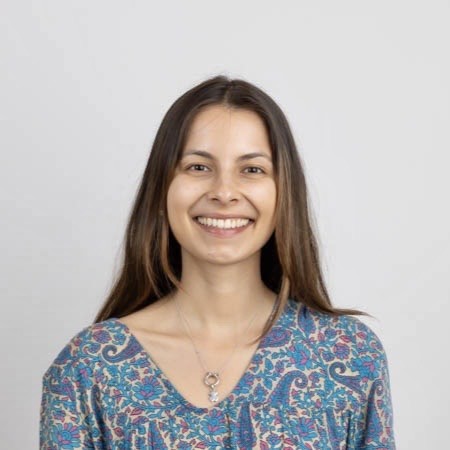Making a bridge between planning and support for (un)realised parenthood goals under the new 21st-century parenthood landscape

Dr Mariana Sousa Leite
Pathway: Psychology
Department: School of Psychology
University: Cardiff University
Mentor: Prof Jacky Boivin
Project Summary
Around half of the patients who do fertility treatment end it without the children they desire. This often results in strong, long-lasting feelings of grief, sadness, and loss, poor mental health and well-being. Patients often talk about feeling unprepared, abandoned by their clinics, and left alone during this difficult time when they most need support. Even though fertility guidelines and regulators say clinics should support patients when treatment does not work, there is critical lack of know-how and resources. My doctorate research looked at patients’ views and needs about the support they should receive when treatment does not work. I developed two types of support: a face-to-face support programme – named Beyond Fertility to help patients cope with ending treatment without a child and online resources for clinics and patients to help clinics support their patients in preparing for the possibility of facing this undesired outcome. These latter were developed with feedback from patients, patient advocates, and healthcare professionals and are freely available online in four languages (www.myjourney.pt/clinics, www.myjourney.pt/patients).
My work has already sparked discussions and interest around this topic. The possibility of treatment not working tends to be avoided at clinics (and research), with focus being on fostering hope and achieving pregnancy. My work argues this does not align with what patients want and stresses the clinical duty to support patients for the treatment end. My work showed 9 in 10 patients want to be prepared for the possibility that treatment may not work even before starting treatment as routine practice. Healthcare professionals claim this support is crucial but do not know how and when to introduce this topic to their patients. They showed to be unaware that patients want this support and reported concerns about patients not being prepared to talk about this, expressing negative reactions they could not manage in the consultation, or judging their medical performance negatively. I carried out five studies that provide the knowledge base to nudge a change in clinics and better equip healthcare professionals on what, when, and how to provide this care towards the treatment end.
Goals for the Fellowship
During my fellowship, I aim to publish and share this work widely and initiate small changes in the clinical practice. This includes reaching patients, healthcare professionals, researchers, educators, and fertility government officials who can help change clinic practices. I plan to do this by speaking at leading scientific conferences, educational initiatives, and public events and using media channels (news, blogs, social media). I will work with fertility organisations (patient charities, scientific societies) at the (inter)national level to make my support resources freely accessible on their websites, inform the curriculum of educational courses to train healthcare professionals, get testimonies from healthcare professionals in providing this care, and work with the UK fertility government regulator to advise on the provision of this care to clinics.
I will use my fellowship to plan for my career. I will work with two leading research teams at De Montfort University and University of Southampton to broaden this approach to care for the general population. That is, support people of reproductive age navigating if and how they want to have children, including preparing them for possible obstacles. During this time, I will receive training in using research to make changes in the real world and in good research and academic practices.
Advice for future applicants
Based on my experience, I would advise you to plan ahead when applying for research funding. Start preparing your application well in advance to allow time for research, writing, reviewing, and refining your proposal. Ensure the funding opportunity aligns with your research mission and significantly contributes to your goals, helping you progress in the direction you aspire. When writing, I would suggest that you clearly define your objectives and detail your methodology rigorously. Outline the short- and long-term benefits, specifying who will benefit from your findings. Provide a realistic timeline, discuss your ideas, and seek feedback from colleagues and mentors. Dedicate time to reflecting and making a solid proposal. I hope you find this feedback useful. Please feel free to contact me if you need any further guidance or advice – I am happy to support future applicants!
Publications
Sousa Leite, M. 2024. ‘What if we never make it!? What’s going to happen to us?’: Routine psychosocial care to promote patients’ adjustment to the end of unsuccessful fertility treatment. PhD Thesis, Cardiff University. https://orca.cardiff.ac.uk/id/eprint/168829
Sousa-Leite, M., Costa, R., Figueiredo, B., & Gameiro, S. (2023). Discussing the possibility of fertility treatment being unsuccessful as part of routine care offered at clinics: patients’ experiences, willingness, and preferences. Hum Reprod, 38(7), 1332-1344. https://doi.org/10.1093/humrep/dead096
Sousa-Leite, M., Fernandes, M., Reis, S., Costa, R., Figueiredo, B., & Gameiro, S. (2022). Feasibility and acceptability of psychosocial care for unsuccessful fertility treatment. Health Expect, 25(6), 2902-13. https://doi.org/10.1111/hex.13598
Sousa-Leite, M., Figueiredo, B., ter Keurst, A., Boivin, J., & Gameiro, S. (2019). Women’s attitudes and beliefs about using fertility preservation to prevent age-related fertility decline – a two-year follow-up. Patient Educ Couns, 102(9), 1695-1702. https://doi.org/10.1016/j.pec.2019.03.019 Gameiro, S., Sousa-Leite, M., & Vermeulen, N. (2019). How do ESHRE members use and evaluate the ESHRE guidelines? Hum Reprod Open, 2019(3), hoz011. https://doi.org/10.1093/hropen/hoz011
Website: https://profiles.cardiff.ac.uk/staff/sousaleitem
Twitter: https://x.com/msousaleite
LinkedIn: https://www.linkedin.com/in/mariana-sousa-leite-90694b164/
